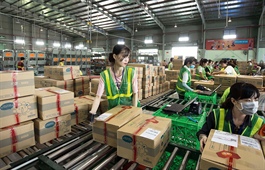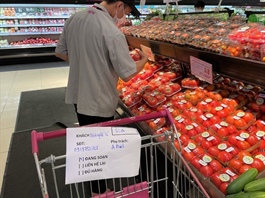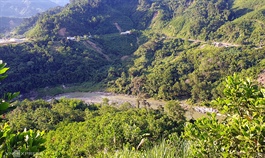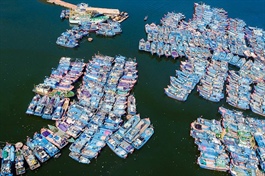Vietnam’s future transition to offshore wind auctions
Vietnam’s future transition to offshore wind auctions
Vietnam is at a critical point to decide which energy sources to implement to meet its rising electricity demand and power the country's rapid economic growth.
In a quite near future, we will be facing more challenges in our power sector in order to meet the rising demand for energy consumption for our economic development. The primary energy resources are being exhausted, especially oil and gas which may lead to the significant import of fossil fuels in the near future. Therefore, the trend of developing renewable energy in the world, including wind power, is a breakthrough solution,” Nguyen Anh Tuan, Director of Renewable Energy Center, Institute of Energy, stated.
The vision of the government to move away from a fossil fuels-based energy mix was formalized last year under Resolution 55, which established the long-term targets for Vietnam’s green transition. The vision and targets of Resolution 55 should be supported by the much-awaited Power Development Plan VIII (PDP8), which is expected to be finalized later this year.
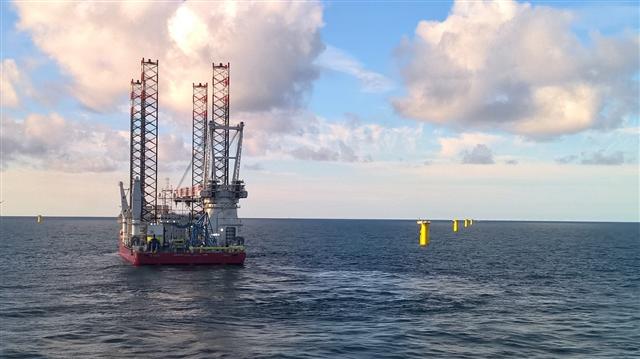
Installation of an offshore wind project
|
The latest draft of PDP8 saw the introduction of a new form of renewable energy – offshore wind. A recent study (World Bank, 2021) predicts offshore wind could meet between 5-12 percent of the country’s electricity supply needs by 2035, with 11-25 GW installed capacity. Currently there are no true offshore wind farms in Vietnam, however, a number of large-scale projects have begun development works. The infancy of the offshore wind sector in Vietnam means that policy is still being formulated. It is highly important to ensure that policies are designed to facilitate stable and sustainable growth and allow time for the offshore wind industry to mature.
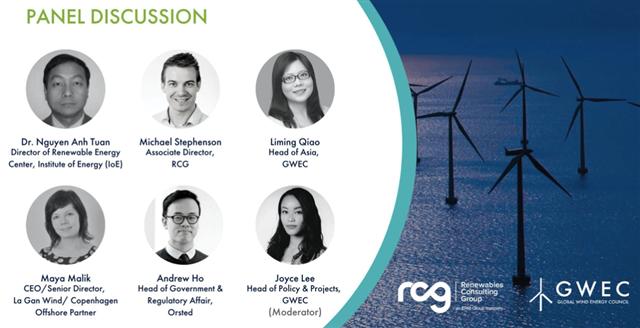
Speakers at the GWEC-led panel discussion “Vietnam’s Future Transition to Offshore Wind Auctions”
|
The report “Vietnam’s Future Transition to Offshore Wind Auctions - International Best Practices and Lessons Learned” by the Global Wind Energy Council (GWEC) and Renewables Consulting Group (RCG), is a study of how six offshore wind markets, the UK, Denmark, Germany, France, the Netherlands and Chinese Taipei, kicked off their offshore wind industries. The report was launched this week by a webinar hosted by GWEC and attended by industry experts and offshore wind developers active in Vietnam: The Institute of Energy, Copenhagen Offshore Partners, Orsted, and the Renewables Consulting Group.
“Offshore wind is a complex industry - there are many lessons for Vietnam to learn from other markets when considering its auction policy. A key recommendation of the report is for Vietnam to establish the industry through a Feed-in-Tariff and transition to an auction process at the 4 to 5 GW mark. Auctions are a good tool for governments to control offshore wind tariffs, once the industry is stable,” said Liming Qiao, Head of GWEC Asia.
The study focusses on how initial projects were selected by governments, and how governments managed the transition from subsidized Feed-in-Tariff (FiT) to competitive price-based auctions. The report examines the characteristics and lessons learned from each market, and makes recommendations on the auction policies, timing and transition for Vietnam’s offshore wind market to succeed.
The report identifies a key trend amongst the most successful offshore wind markets – all of these countries started with an initial Feed-In-Tariff scheme, and only moved to auctions once the industry was sufficiently active.
The key recommendations for Vietnam are summarized below:
- A FiT for offshore wind should be applied to support an initial stage of true offshore wind projects.
- The FiT will give confidence to investors to push ahead with project development, which will help to support the local supply chain.
- An earlier transition to auction would apply excessive pressure on these companies to upskill and deliver at low cost, without the resources and time to do so. Excessive pressure would lead to investors relying on the experienced international supply chain, rather than harnessing local companies.
- An earlier transition to auction will also require 1 to 2 years for the government to prepare the auction regime and guidelines, which will unnecessarily delay the first batch of offshore wind projects and delay the supply of energy to Vietnam.
- Ahead of auctions being introduced, bankability of the current PPA should be improved to attract foreign investment. PPA bankability will be crucial for development of offshore wind projects due to the large scale of investment required.
Webinar panelist Maya Malik, Senior Director at Copenhagen Offshore Partners and General Director of the La Gan Wind Power Project, commented, “Vietnam has good fundamentals and a huge potential for offshore wind but we are still at a very early stage of the market. cIt would be difficult for us to confidently price a project and submit an auction bid at this point in time. From our perspective, the preferred model is to first start with pilot projects and an initial FiT that allows the industry and the government the time to solve the issues around permitting, grid and harbor infrastructure, supply chain and project finance-ability, then transition to auctions once the industry is more stable.”







